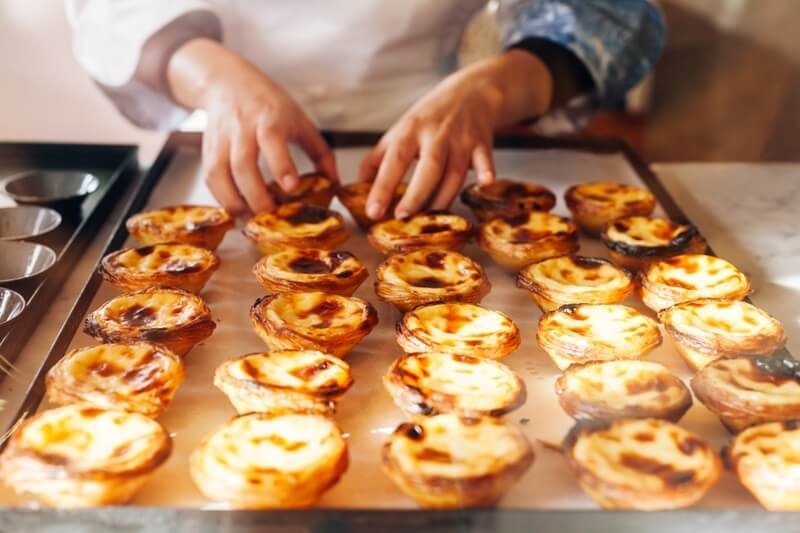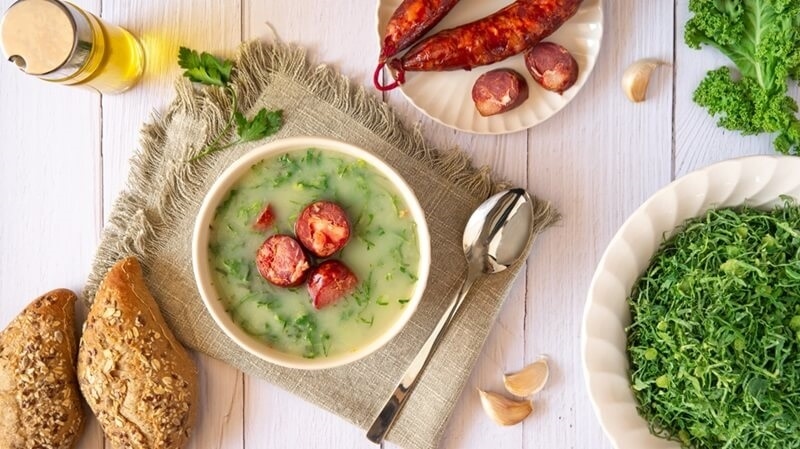
Portugal is lovely with its sunny beaches, quaint fishing villages, and a passionate love for great food. Many travelers find delicious seafood for themselves by enjoying it at the waterfront while others, to the delight of the locals, choose to learn the art of preparing it by themselves. It is exactly in this moment that Portugal cooking classes unveil new tastes and traditions, and not only that. History, culture, and the welcoming hospitality of the Portuguese kitchen are all intertwined in these classes.
If you are an enthusiast of practical activities during your tours, food exploration through local lessons could become the most captivating part of your trip.
Not cooking classes but a cultural journey that brings visitors closer to local customs is what cooking classes in Portugal represent. The locals teaching you how to select the freshest products at the market and at the same time getting to know the reasons why olive oil is at the heart of the Portuguese way of life, these lessons give you a chance to gain a lot of knowledge that is far beyond the plate.
Taking a decision and enrolling in Portuguese cooking classes means that you are also agreeing to meet exciting chefs and ladies who love to cook at home. Along with the new things you learn, they also reveal family secrets, tell you stuff about seaside lifestyle, and give you shortcuts that you will not come across in books. The dedication of the artist makes him unforgettable.
Considering the fact that Portugal is a country with a very long and beautiful coastline, it is not at all surprising that fish and seafood are at the heart of its gastronomy. Most of the time sardines, cod, clams, and octopus are the food of the day. In cooking classes, guests can learn how to barbecue sardines in the same way as the locals or how to do a delicious fish stew that reminds people of the sea slowly but surely.
A major portion of these teachings is based on Portuguese kitchen culture, which is centered on the principles of freshness and simplicity. Eating is all about respecting ingredients, cooking with love, and eating good food with people you love.

Some visitors may want to incorporate Portugal tours with the cooking experience. Cooking tours in Portugal usually envision market visits, vineyard stops, and beachside picnics combined with hands-on cooking. You can start by touring Antarctica's stalls full of olives, cheese, and spices in the morning, then taking a local kitchen to learn and cook a traditional dish.
These tours depict a broader picture of the connection of Portuguese food to the land and the ocean. It is not only about learning to cook but also about where the food comes from and how it is celebrated. For those who wonder about culture and food together, these tours offer an integrated experience.
The southern coast of Portugal, the Algarve, is known for its spectacular sandy beaches and the old fishing villages with their winding streets. Algarve food lessons, however, are another of its high praises.
Seafood is what we eat out there: cataplana (clams and fish cooked in a specific copper pan) to the barbecue of octopus, nothing is missing from the table. Algarve food lessons are often held in a beautiful historic country house, or in a kitchen by the sea. The locals pick the fresh ingredients, and the chef tells them which recipe to use. Then, everyone cooks the recipe that has been passed down for centuries.
The weather is also a huge advantage as a lot of fresh fruits and vegetables are available, be it figs, almonds, or juicy oranges. When cooking the dishes you have chosen, all these flavors will come together in a harmony of tastes.
Portugal’s traditional recipes are the backbone of every cooking course, and these dishes are the narrative of the country’s history. The food of Portugal has come under the influence of explorers, trade routes, and even former colonies. The following are some of the traditional recipes you may find:
Only by fooding these recipes on the spot will you not just be cooking, but will also be aiding the maintenance of the cultural heritage. Making these tastes travel directly with you makes it possible for you to be the one who takes a little bit of Portugal to your family and friends.
Today, the main reason why people travel is food, and the world over Portugal gastronomy travel is becoming more and more popular. Tourists of this type are not satisfied with just eating out in restaurants. They want to be able to touch the reality, to cook and to feel as if they were an integral part of the tale told.
Gastronomy travel in Portugal is not just limited to Lisbon and Porto. You can also find the places where you can bake bread in traditional ovens or make cheese by hand in smaller towns and villages. Travelers can get a glimpse of real local life through these types of programs.
The rise of Portuguese food tourism is a reflection of the trend of world tours, which value the combination of culture, history, and flavors. Visitors now demand to be given such experiences. Portugal fits this demand like a glove. Its long coast, verdant valleys, and well-preserved traditions make it a perfect place to go for a culinary adventure.
Usually, these cooking classes are combined with wineries visits, tours of local farms or fishing activities. This kind of diversity is what makes Portugal so attractive to food lovers.
One of the most delightful things about the learning process in Portugal is discovering Portuguese kitchen culture. Contrary to the hectic cooking that one sees in other places, the Portuguese kitchen is the gathering place for the family. Food is slowly prepared, people are talking, and meals are being shared in an abundant way.
In fact, the cooking classes are usually the embodiment of this particular atmosphere. The students are found sitting together at long tables; they work with the vegetables in the same manner, and they share the laughter over a glass of vinho verde. It is more like being part of a family dinner than attending a technical lesson. In that sense, belonging is one of the most important reasons for travelers to recall those experiences with such warmth.
Thinking of going for a cooking class in Portugal, and then here are a few simple tips to help you out:
Scrutinizing the experiences and taking a peek into the participants' lists of pros and cons might indeed be a very helpful attitude while deciding.
The thing is, climbing up to Portugal to get into the cooking classes is an unusual sort of getaway game. Working through these exercises, you not only become a master of the heart of Portugal's coastal cuisine but also imbibe a newfound respect for age-old customs in the country.
The food has never just been about the flavor; it is also about people, memories, and connection. The skills that you acquire in Portugal are one of the best things that you take with you when you go back home.
This content was created by AI